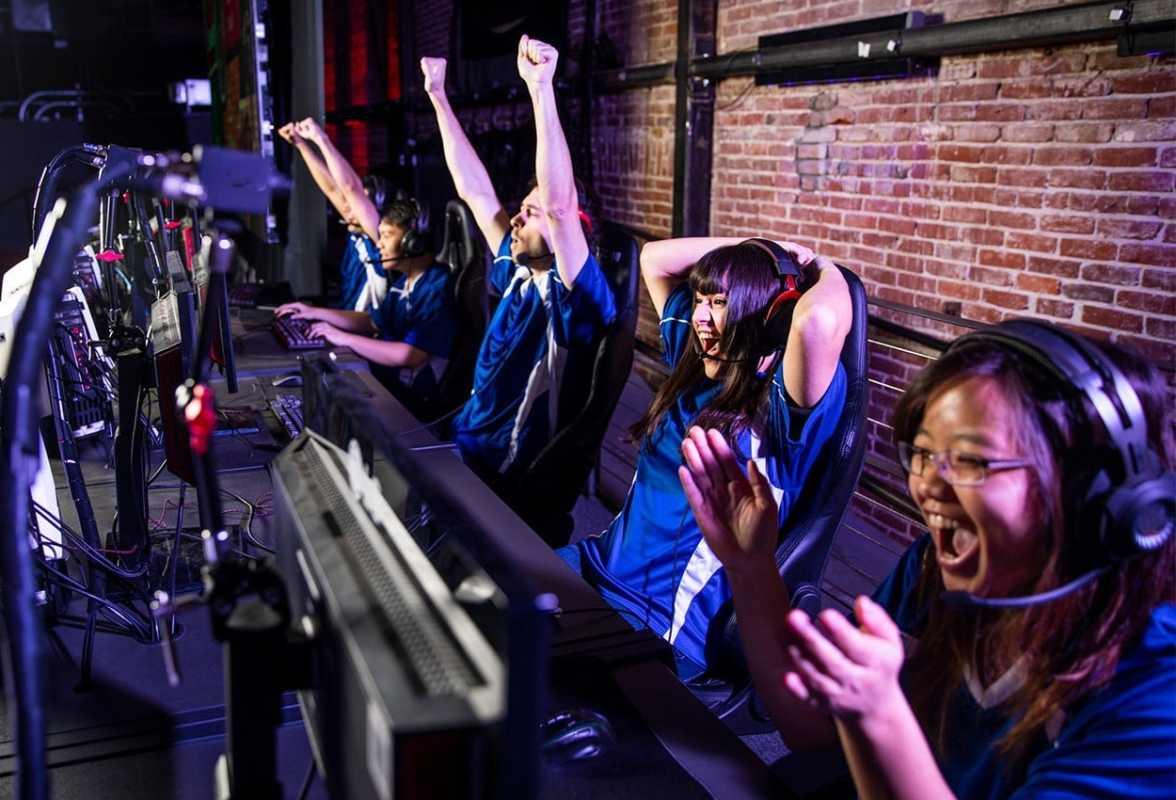Features
The Rise Of Sports Gaming And Esports Culture

Sports gaming and esports culture have skyrocketed in popularity in recent years, captivating millions of avid fans around the world. With the ever-increasing accessibility of technology and the emergence of professional players and tournaments, both the traditional sports gaming industry and the emerging esports scene have charted new territories, giving rise to a new era of gaming and sports entertainment.
The Growth of Sports Gaming
Traditional sports gaming, often played on consoles or PCs, has been a staple in the gaming community for decades. However, it wasn’t until recent years that it gained mainstream recognition and acceptance. The exponential growth of internet connectivity, improved graphics, and realistic gameplay experiences has played a significant role in this surge.
Game developers have invested heavily in creating realistic sports simulations, capturing the essence of popular sports such as soccer, basketball, and football. With each release, the gaming experience becomes more immersive, allowing players to feel like real athletes competing in high-stakes matches.
Furthermore, the integration of online multiplayer modes has fostered a competitive environment. Players can now challenge friends or even strangers from all corners of the globe, engaging in intense matchups and forming virtual communities. This social aspect has brought sports fans closer together, bonding over their shared love for the game.
The Rise of Esports
While traditional sports gaming thrived, another gaming phenomenon was silently making its way to the forefront: esports. Esports, or electronic sports, refers to competitive video gaming where professional players compete in organized tournaments. What was once a niche subculture has now evolved into a worldwide phenomenon.
With the advent of streaming platforms like Twitch and YouTube Gaming, esports tournaments are now accessible to anyone with an internet connection. Millions of viewers tune in to watch these events, often surpassing the viewership of traditional sports championships. Major esports tournaments, such as The International for Dota 2 and the League of Legends World Championship, boast multimillion-dollar prize pools, attracting top talent from across the globe.
Esports has ushered in a new era of professional gaming, with players becoming celebrities in their own right. These esports stars enjoy massive followings, with fans eagerly watching their every move and cheering for their favorite teams. The rise of esports has also led to the creation of dedicated esports organizations, sponsorships, and lucrative endorsement deals.
Convergence of Sports Gaming and Esports
In recent years, there has been a growing intersection between traditional sports gaming and esports. Professional sports leagues, such as the NBA and NFL, have recognized the potential of esports and have started their own esports leagues. These leagues feature virtual representations of real-world teams and offer players the opportunity to compete at the highest level.
Additionally, traditional sports teams have begun investing in esports organizations, creating a symbiotic relationship between the two industries. This convergence has opened up new avenues for both gamers and traditional sports enthusiasts, providing diverse opportunities for individuals to engage with their favorite sports in different forms.
The Cultural Impact
The rise of sports gaming and esports culture has had a significant impact on our society. It has blurred the boundaries between traditional sports and gaming, creating a melting pot of fans who appreciate both. In turn, this has fueled the growth of a vibrant esports community, where enthusiasts from various backgrounds come together to celebrate the art of competitive gaming.
Esports has also challenged the stereotype of the solitary gamer, showing that gaming can be a social and collaborative experience. Numerous esports events and conventions gather fans, professional players, and game developers under one roof, fostering a sense of community and camaraderie among attendees.
Furthermore, the emergence of sports gaming and esports has opened up new career paths and opportunities. Professional players can earn substantial incomes through sponsorships, prize money, and streaming revenue. Additionally, jobs in the esports industry, such as coaches, analysts, and event organizers, have become more prevalent, offering employment possibilities for passionate individuals.
The Future Ahead
As technology continues to advance and the global gaming community expands, the rise of sports gaming and esports culture shows no signs of slowing down. The line between virtual and physical sports will continue to blur, generating new experiences, modes of competition, and entertainment avenues.
With the introduction of virtual reality and augmented reality technologies, players may soon find themselves fully immersed in the game, making the gaming experience even more lifelike. Esports tournaments will likely attract even larger audiences, potentially becoming part of mainstream media and drawing viewership comparable to major traditional sports events.
Overall, the rise of sports gaming and esports culture signifies an exciting and transformative shift in the entertainment landscape. Traditional sports gaming and esports have become more intertwined than ever before, bridging the gap between sports enthusiasts and gamers. Whether you prefer the virtual or physical realm of competition, there is no denying the impact and excitement these industries bring to our lives.










